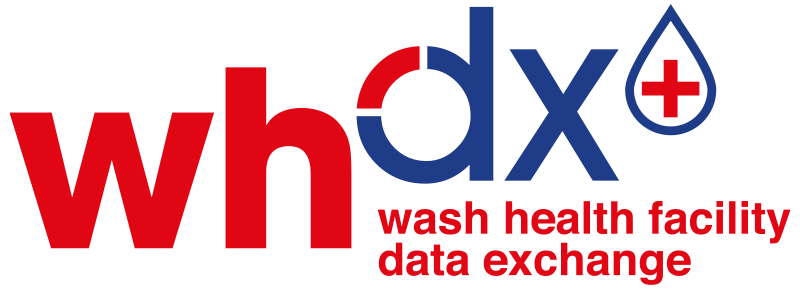2020 was a year we will not forget.
Our global community faced new challenges which changed day-to-day life in unprecedented ways. However, the importance of consistent access to water, sanitation, and hygiene (WASH) services in communities and especially at health care facilities (HCFs) did not change, but was instead underscored, as we encountered many unanswered questions about the new coronavirus pandemic.
Handwashing remains one of the primary barriers to preventing the spread of infectious disease. Access to WASH services is key to the resilience of communities as we seek to mitigate the health and economic impacts of coronavirus and ensure the continuation and expansion of sustainable water services. Beyond the linkage to preventing the spread of coronavirus, consistent access to WASH services results in substantial time savings for women and girls, and is associated with positive health, economic, and educations opportunities.
For WPDx, our goal to support governments and their partners in using data-based decisions to improve rural water access, is more pressing. As such, our work last year gained momentum including:
- Making data sharing even easier. The launch of our new website and ingestion engine enables organizations to more easily share, access, and analyze water point data. The new ingestion engine allows for organizations to share data in a variety of formats, with minimal processing, and in just minutes, removing one of the major barriers to sharing data. Training materials can be found on the resources section of the new website.
- Initiating a WASH in HCF platform. To support a better understanding of the current status of WASH in HCFs and to help optimize investments, WPDx, together with the Millennium Water Alliance launched a new effort to build a WASH in HCF open data sharing platform.
- Continuing our partnership with the Ministry of Water Resources in Sierra Leone. Over the past several years, Sierra Leone has been on an ambitious path to digitize their rural water data to enable improved decisions from national budgeting to district work-planning. The Ministry of Water Resources issued a letter of support requesting that all NGOs share data directly with the WPDx platform. Together with Akvo, WPDx continued to support the Ministry of Water Resources in these efforts, providing data on a shared platform, and using cutting-edge analysis to inform priority locations for investment, maintenance, and repair.
- Launching a new partnership with the Ministry of Water, Irrigation, and Energy in Ethiopia. Almost 70 percent of the rural population of Ethiopia lacks access to at least basic water services. In partnership with the Millennium Water Alliance, we initiated a new workstream to support the Government of Ethiopia to harmonize diverse datasets and transform that data into estimates of basic water coverage across the country to help track SDG progress. The Ministry of Water, Irrigation and Energy provided letters of support to work with WPDx on their national monitoring efforts and for working directly with NGOs to share data with the platform.
- Improving our decision-support tools. We continue our work to refine our suite of decision-support tools. In a collaboration with DataRobot and Akvo, we are continuing efforts to improve our machine learning models for our Current Water Point Status tool.
- Sharing lessons learned. WPDx sponsored a Rural Water Supply Network (RWSN) webinar featuring progress and lessons learned from Sierra Leone and Ethiopia.
Looking forward in 2021: Continuing momentum
As we embark on 2021, WPDx has an ambitious slate of activities planned to help governments and their partners optimize their limited resources for maximum reach, including:
- Celebrating Open Data Day (March 6th 2021). WPDx is encouraging organizations to share data ahead of Open Data Day. Data sharing is a key aspect of transparency and accountability for the water sector. More details to follow.
- Continuing existing and building new partnerships. WPDx will continue work in Ethiopia and Sierra Leone and seek to replicate and scale successes in additional geographies, including Ghana and Uganda.
- Responding to stakeholder needs. Collaborating closely with governments and NGOs to regularly share data and refine and improve our suite of decision-support tools to help optimize rural water investments remains a top priority.
- Launching an improved dataset. In the coming months we will launch WPDx+, a subset of the larger WPDx database for geographies with full national or district coverage. The WPDx+ dataset will include additional data processing steps, including data cleaning and addition of new geospatially derived parameters to bolster decision-support analysis.
- Establishing a new data standard for WASH in HCF. For the WASH in HCF platform, we will be working with a group of sector leaders to define a data standard and build a new platform to allow WASH in HCF data sharing.
The activities described above could not have been completed without generous support and partnership from The Coca-Cola Foundation, the Conrad N. Hilton Foundation, DT Institute, and the Vitol Foundation and in-kind contributions from DataRobot and Esri.
